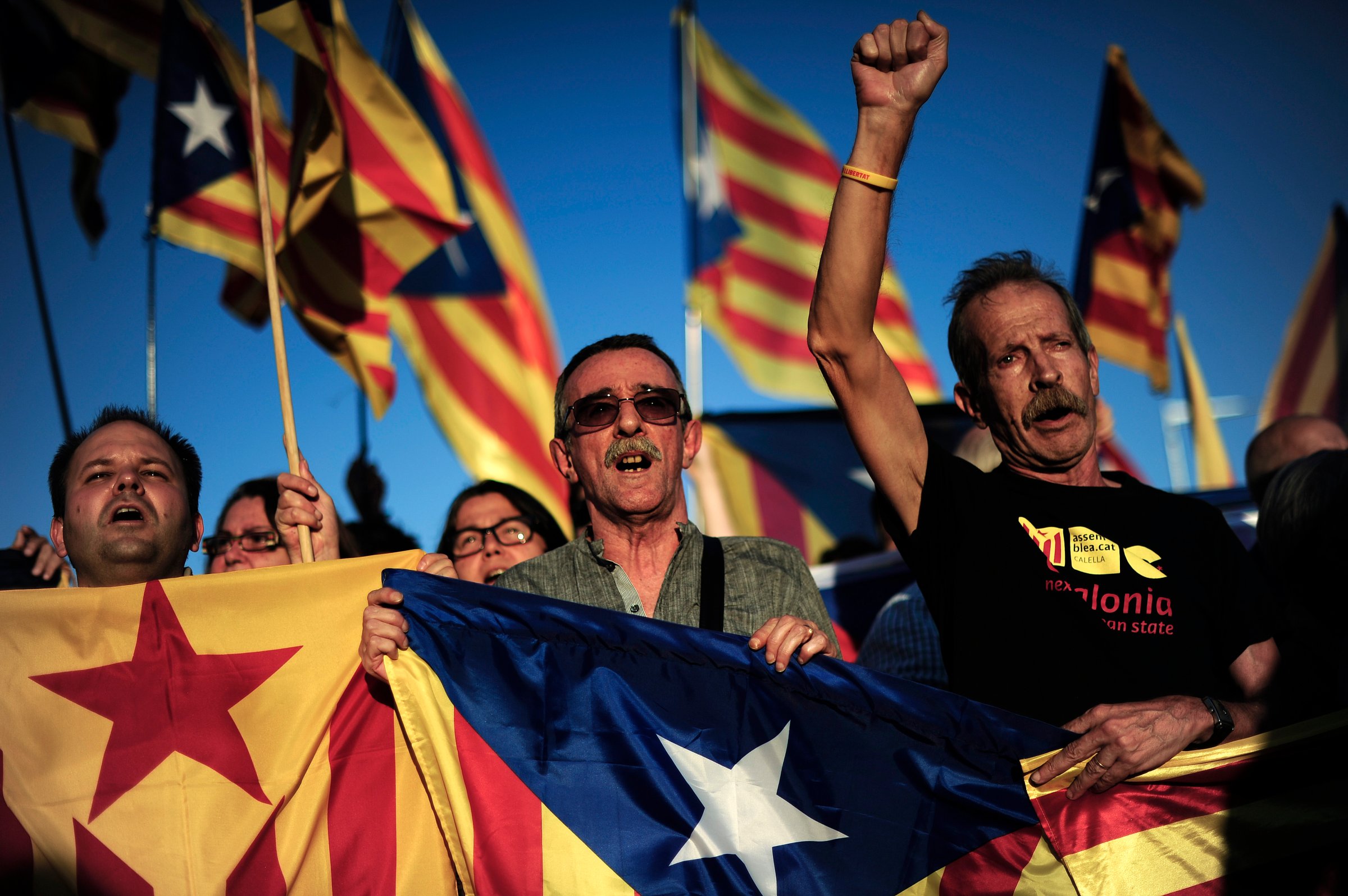
In a Tuesday ruling, Spanish judges found Catalonia’s planned independence referendum to be unconstitutional, but secessionists in the Spanish autonomous region (called a “community” in Spain) have vowed to proceed regardless.
“This will have no effect on the process,” said the Catalan government’s spokesman Francesc Homs on local television.
Although stifled under the yoke of the Franco dictatorship, Catalonia has long felt cultural and linguistic disctinction from the rest of Spain. In recent years, it developed into a powerhouse of the nation’s economy. However, amid the country’s financial crisis, Madrid has been urging national unity.
“No one can unilaterally deprive the entire Spanish people of the right to decide on their future,” Spain’s conservative Prime Minister Mariano Rajoy told the parliament, which is due to debate the referendum on April 8.
Catalan leaders have compared their situation with Scotland’s, which will hold a referendum on independence in September, but the Spanish Constitutional Court found that the country’s charter does not allow such a poll.
Last September 11, Catalonia’s national day, hundreds of thousands of Catalans formed a vast human chain across the region to call for independence. The referendum, if it goes ahead, is planned for Nov. 9.
[AFP]
More Must-Reads From TIME
- Dua Lipa Manifested All of This
- Exclusive: Google Workers Revolt Over $1.2 Billion Contract With Israel
- Stop Looking for Your Forever Home
- The Sympathizer Counters 50 Years of Hollywood Vietnam War Narratives
- The Bliss of Seeing the Eclipse From Cleveland
- Hormonal Birth Control Doesn’t Deserve Its Bad Reputation
- The Best TV Shows to Watch on Peacock
- Want Weekly Recs on What to Watch, Read, and More? Sign Up for Worth Your Time
Contact us at letters@time.com